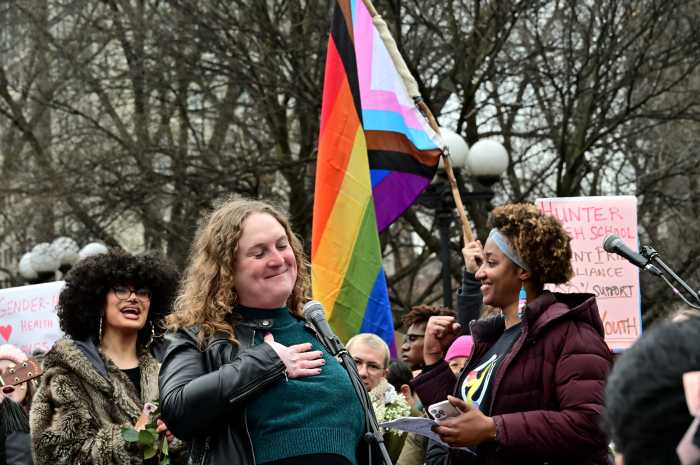California court upholds excluding straight couples from domestic partner law
A California appeals court has found that it was rational for the state legislature to limit the benefits of domestic partnership to same-sex couples who cannot marry and elderly straight couples who would suffer reduced Social Security benefits if they married.
Rejecting a fairness claim by a surviving unmarried straight partner, the court found no constitutional equality violation in the law. Judge Earl Johnson wrote the court’s opinion, released on September 15.
The case was brought by Jack Holguin, who had been living with Tamara Booth for three years when she died as the result of a traffic accident. Holguin alleged that his relationship with Booth was “intimate and committed,” and that they were jointly responsible for each other’s basic living expenses. Though there was no legal barrier to their marrying, they had not done so.
Holguin filed suit against the driver and the owner of the truck that had sideswiped Booth’s car, causing her death. Under California law, such a “wrongful death” suit can be brought by a registered domestic partner or a legal spouse, but not by the unmarried survivor of a couple simply living together. The trial court concluded that Holguin and Booth did not qualify as statutory domestic partners, and that his inability to bring a lawsuit did not violate the equal protection of the law guaranteed by the federal and state Constitutions.
The court of appeal agreed. Holguin had argued that he and Booth qualified under the domestic partnership law’s definition of “two adults who have chosen to share one another’s lives in an intimate and committed relationship of mutual caring.” However, the law also limits those eligible to same-sex couples and couples with one partner at least 62 years old. Clearly, the Legislature did not intend for opposite-sex couples who had the option of marriage without losing Social Security benefits to benefit from the rights of domestic partners.
Turning to the constitutional challenge, the court of appeals found that the right to sue for wrongful death, a right created by statute, had never been treated as a fundamental right, and that it was rational for the Legislature to extend this right to registered domestic partners, because they were not given the legal or practical option of marrying in order to protect their partnership interests. By contrast, Holguin and Booth could have married and decided not do so.
“Holguin’s argument boils down to the claim the state discriminated against him on the basis of his gender, heterosexual orientation and age by giving him the legal option to marry which it denied to others on the basis of their gender and age,” wrote Johnson. “No case we know of has held the plaintiff was denied equal protection because he was a member of a class granted more advantages than the comparison class. We decline to adopt this new definition of ‘reverse discrimination.’”
Johnson also found it rational for the state to have concluded that those who could marry but did not had “evidenced a lack of permanent commitment which made compensation for loss of monetary support too speculative to calculate.”



































